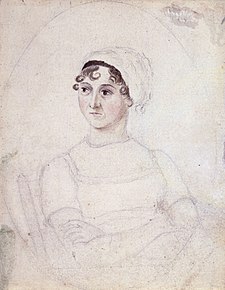On a rainy night in late September (and this year, in Virginia, on just about every night in late September, it rained plenty), I had the pleasure of participating in a Mystery Writers of America panel at George Mason University's Fall for the Book festival. The moderator, fellow SleuthSayer Art Taylor, opened things up by asking us to respond to a time-honored piece of writing advice: "Write what you know." To what extent, Art asked, did we draw on our own experiences when we created our characters and stories? How much did we push beyond the limits of those experiences?
 The question came exactly one week before the release of my young adult mystery, Fighting Chance
(The Poisoned Pencil/Poisoned Pen Press). My protagonist is a
seventeen-year-old male athlete growing up in a small town in Virginia.
I'm a woman, I'm decades past seventeen, I was never an athlete at any
age, and I grew up in Buffalo, New York. If it's smart to write what we
know, I'm in trouble.
The question came exactly one week before the release of my young adult mystery, Fighting Chance
(The Poisoned Pencil/Poisoned Pen Press). My protagonist is a
seventeen-year-old male athlete growing up in a small town in Virginia.
I'm a woman, I'm decades past seventeen, I was never an athlete at any
age, and I grew up in Buffalo, New York. If it's smart to write what we
know, I'm in trouble.The situation made me think back to a guest blog I wrote several years ago for Sleuths' Ink, a writers' group in Springfield, Missouri. In that blog, I compared the views of several classic authors who express opinions about whether writers should stick to writing about what they know. I decided to go back to that topic in this month's SleuthSayer's post. If two or three people on the planet still remember my old Sleuth's Ink blog--and that's undoubtedly a generous estimate--I can assure you this post will be different. Among other things, two of the authors I'll discuss this time are new.
"Write what you know"--next to "show, don't tell," that's probably the advice fiction writers hear most often. It can feel painfully limiting. What if you want to write a war novel, and you've never been to war? You can research battles and weapons, you can read soldiers' memoirs, but can you really know how it feels to run forward into a barrage of bullets or hurl a hand grenade at another human being? Can you describe those moments vividly enough to bring them alive for readers? Or should you forget the war novel and stick to writing novels about preparing tax returns, or tempting toddlers to try new vegetables, or doing whatever else your personal experience has taught you how to do?
Jane Austen stuck to writing what she knew, and she apparently made a conscious decision to do so. In letters written in 1815 and 1816, James Clarke, the Prince Regent's librarian, urges her to broaden her horizons. But when he suggests she write about a learned clergyman, Austen says she lacks the necessary education. When Clarke suggests she write a historical romance about the royal house of Belgium, her refusal is more emphatic. "I could no more write a romance than an epic poem," she says. "I could not sit down to write a serious romance under any other motive than to save my life." Austen insists she should write only about the people, places, and situations she knows best.: "I must keep to my own style, and go on in my own way."
 Did she think all writers should follow her example? In an 1816 letter to
her nephew Edward, Austen praises his "strong, manly, spirited sketches, full of variety and glow." She contrasts them with her own novels,
which she describes as "the little bit (two inches wide) of ivory on
which I work with so fine a brush, as produces little effect after much
labor." Some writers, Austen seems to imply, are right to attempt works
with greater "variety" than her own.
Did she think all writers should follow her example? In an 1816 letter to
her nephew Edward, Austen praises his "strong, manly, spirited sketches, full of variety and glow." She contrasts them with her own novels,
which she describes as "the little bit (two inches wide) of ivory on
which I work with so fine a brush, as produces little effect after much
labor." Some writers, Austen seems to imply, are right to attempt works
with greater "variety" than her own.It's possible, of course, that she didn't really admire her nephew's writing as much as she claims, and didn't really think so little of her own work. We all know how unreliable beta readers can be. But it's clear she thought some writers are wise to limit themselves to writing about what they know best.
Edith Wharton, in The Writing of Fiction, rejects such limits. "As to experience," she says, "the creative imagination can make a little go a long way, provided it remains long enough in the mind and is sufficiently brooded upon. One good heart-break will furnish the poet with many songs, and the novelist with a considerable number of novels. But they must have hearts that can break." The crucial thing for writers, according to Wharton, isn't experience itself. Even if your experiences are limited, your imagination can help you use what you've experienced as a basis for writing about what you haven't.
Wharton's words echo Wordsworth's statement that poetry "takes its origin from emotion recollected in tranquility." Both writers seem to agree that we should write not when experiences are new and emotions are raw but after some time has passed, after we've had time to think about what what happened. I'm struck, too, by Wharton's use of the word "brood." It calls to mind the image of a hen brooding over her eggs, warming them, nurturing the life within them. If we brood about our experiences, will we awaken the hidden life they hold? If so, maybe it's the quality of the brooding that matters most, rather than the experiences themselves. Maybe brooding is the key to finding a way to, in Wharton's phrase, "make a little go a long way."
Flannery O'Connor agrees. In "The Nature and Aim of Fiction," she has nothing good to say about people who "think they are already writers by virtue of some experience they've had." "These people," she says, "should be stifled with all deliberate speed." Not all Senators can write riveting political thrillers, and not all police detectives can write gripping mysteries.
If you're meant to be a writer, O'Connor says, you don't need a wide variety of experiences: "The fact is that anybody who has survived childhood has enough information about life to last him the rest of his days. If you can't make something out of a little experience, you probably won't be able to make it out of a lot. The writer's business is to contemplate experience, not to be merged in it." Like Wharton, O'Connor emphasizes the importance of contemplating or brooding upon experience.
 Both
Jane Austen and Flannery O'Connor led quiet lives. Neither ever
married. Both died young. Unlike Austen, however, O'Connor sometimes
chose to write about bizarre characters and violent situations that lay
far outside her personal experience. These two authors chose different
paths, but both created enduring works of fiction.
Both
Jane Austen and Flannery O'Connor led quiet lives. Neither ever
married. Both died young. Unlike Austen, however, O'Connor sometimes
chose to write about bizarre characters and violent situations that lay
far outside her personal experience. These two authors chose different
paths, but both created enduring works of fiction.Henry James agrees a good writer can "make something out of a little experience." In "The Art of Fiction," James describes experience as a "huge spider-web" that can catch "every air-borne particle in its tissue." Like a spider web, an imaginative mind "takes to itself the faintest hints of life." A true writer can convert those hints into compelling fiction.
To illustrate his point, James describes an unnamed English novelist who wrote a highly praised tale about young French Protestants. When, people asked her, had she observed her subjects closely enough to be able to portray them so realistically? The novelist told James she'd simply passed an open door in Paris and glimpsed some young French Protestants sitting around a table. "The glimpse made a picture," James says. "It lasted only a moment, but that moment was an experience." Writers don't need much actual experience, not if they have active, fertile minds. The crucial thing, James says, is to "try to be one of those people on whom nothing is lost!"
 "Try to be one of those people on whom nothing is lost"--has better advice
ever been offered to writers? Some people can pass through all sorts of
experiences without gaining significant insights into them, or having
much to say about them. Other people can grasp at "the faintest hints of life" and use them to create characters and situations that go far
beyond their own experiences.
"Try to be one of those people on whom nothing is lost"--has better advice
ever been offered to writers? Some people can pass through all sorts of
experiences without gaining significant insights into them, or having
much to say about them. Other people can grasp at "the faintest hints of life" and use them to create characters and situations that go far
beyond their own experiences.Write what you know? Sure. But if your talents and interests lead you in other directions, you can also write what you guess, what you imagine, what you conclude after careful thought, what you infer from the inevitably limited opportunities for experience any single human life supplies.
If you want to write a war novel but have never been to war, go ahead. Stephen Crane did that, and The Red Badge of Courage has given millions of readers insights into what it feels like to be locked in a battle they can neither control nor understand. Take what you know of fear, of desperation, of honor, and infuse it into a situation you've never directly experienced. If you've observed closely enough, if you've brooded long enough, if you've analyzed deeply enough and imagined fiercely enough, you might just have something.
(One final note--when this post appears, I'll be at Bouchercon. I'll have access to my husband's laptop, but I hate laptops. It takes me many minutes to peck out a single sentence, and I utter many unpleasant words while I'm doing it. I'll try, but I may not do a good job of replying to comments on Saturday. But I'll reply to every one once I get home on Sunday.)